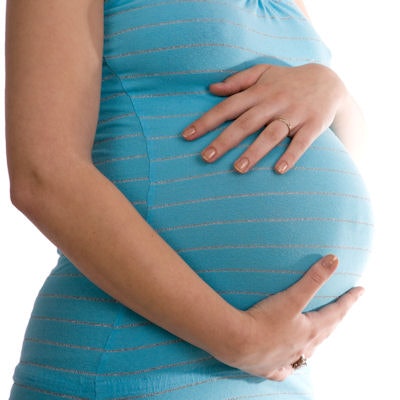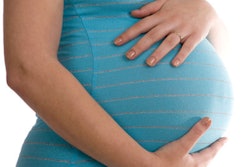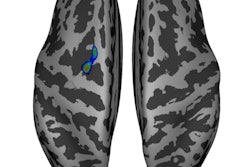
MRI in the first trimester of pregnancy does not put the fetus at increased risk of stillbirth, birth defects, hearing loss, or childhood cancer, according to a study published in the September 6 issue of the Journal of the American Medical Association.
The findings are good news as clinicians are relying more and more on imaging as a diagnostic tool, while still seeking to avoid imaging pregnant women with modalities that expose them to ionizing radiation, the researchers wrote.
"There is general acceptance that whenever possible clinicians should choose an imaging modality during pregnancy that has little or no ionizing radiation, such as ultrasonography and magnetic resonance imaging," wrote the team led by Dr. Joel Ray from St. Michael's Hospital in Toronto.
Refining the guidelines
Although MRI has been considered safe for use in the second or third trimesters of pregnancy, clinicians have expressed concern that the exam in the first trimester could heat fetal tissues during a crucial time of development and expose the growing embryo to too much noise. However, according to the study findings, this doesn't appear to be the case.
 Dr. Joel Ray from St. Michael's Hospital.
Dr. Joel Ray from St. Michael's Hospital."We know that many women, at a very early stage of pregnancy, may not know that they are pregnant, so they are inadvertently exposed to MRI," Ray told AuntMinnie.com. "These women need some assurance. Also, some women in the first trimester of pregnancy need quality imaging for a potentially serious condition, and MRI does not introduce radiation when images are being taken."
Ray and colleagues sought to refine clinical guidelines for MRI in pregnant women. They used data from the Institute for Clinical Evaluative Sciences (ICES) on more than 1.4 million births in Ontario between 2003 and 2015, comparing women who had first-trimester MR exams with those who did not. The team tracked the health of the women's children up to the age of 4 (JAMA, September 6, 2016, Vol. 316:9).
The study did not include information about why the women had the exam, or whether they knew they were pregnant when they did, although Ray's team noted that 44% of physicians ordering the MRI were in family practice, which suggests the exam may have been scheduled before the woman conceived.
Out of more than 1.4 million delivered pregnancies, 5,654 (0.4%) women had an MRI, for an overall rate of four MR exams per 1,000 pregnancies. Among these women who had MR exams during pregnancy, 1,737 (30%) underwent the exam during the first trimester, and 397 (7%) had a contrast-enhanced exam in any trimester. Most of the MR exams were of the head or spine.
The researchers found 19 stillbirths or neonatal deaths in women who had undergone first-trimester MRI, compared with 9,844 in the cohort of 1,418,451 pregnancies without MRI exposure, for an adjusted relative risk of 1.68 -- which was not statistically significant, Ray said. The incidence rate of birth defects, hearing loss, or childhood cancer in the babies of women who had first-trimester MRI was not significantly higher than in women who did not have MRI during pregnancy.
Of the 397 women who had gadolinium-enhanced MRI during their pregnancies, there were seven stillbirths or neonatal deaths, compared with 9,844 in the cohort of 1,418,451 pregnancies without MRI exposure, for an adjusted relative risk of 3.70. First-trimester contrast-enhanced MRI exposure was associated with a slightly higher risk of rheumatological or inflammatory skin conditions in children up to 4 years old, according to Ray and colleagues.
"Until further studies are done, these findings suggest that gadolinium contrast should be avoided during pregnancy," they wrote.
But, overall, the results offer reassurance to both women and the physicians caring for them, Ray concluded.
"For practitioners who have been uncertain about the safety of MRI in early pregnancy, our findings should inspire greater confidence," he said.





















